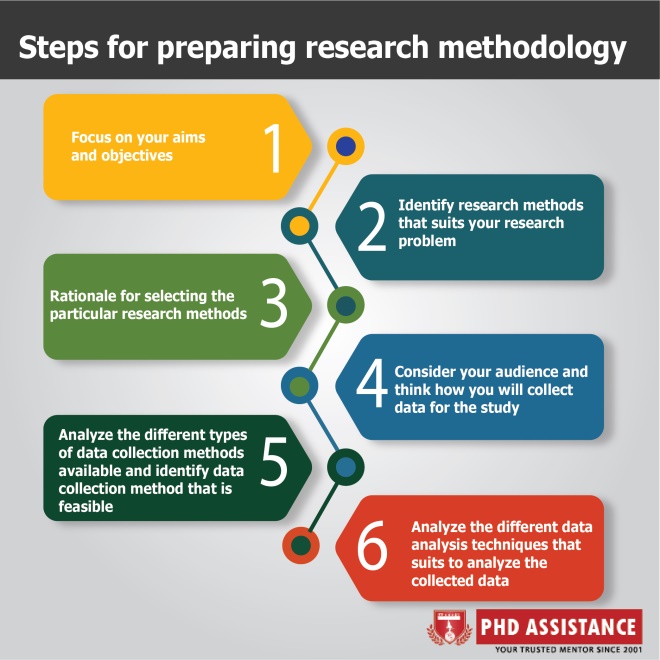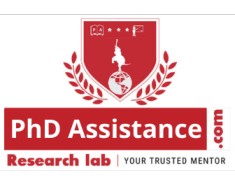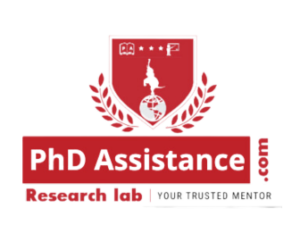Steps for preparing research methodology
IN BREIF
To create a solid research technique, start by outlining the study topic and objectives. Conduct a thorough literature review to get an understanding of existing information. Choose a suitable study design, whether qualitative, quantitative, or a combination of the two. Choose an appropriate sampling technique and calculate the sample size. Create data gathering methods, such as questionnaires or interviews, while keeping study objectives in mind. Pilot test these technologies to detect and fix problems. Implement the finalized approach, gather data in a methodical manner, and evaluate it using appropriate statistical or qualitative techniques. Finally, develop relevant conclusions and recommendations based on your results. Review and improve the technique as needed during the study process.
- Check our PhD research methodology examples to learn about how we review or edit an article for research methodology.
INTRODUCTION
In general, research methodology refers to a systematic way of solving a research problem and it is the process of studding how a research is carried out systematically (Snyder, 2019). In the research, methodology is often noted to be an important section as it is can impress the readers most efficiently. The success and overall consistency of the study will be determined by the methodology chosen for the research. Research methodology is often written using a model or structure that helps readers understand the process. The following steps will exemplify how can a research methodology prepared to make the reader more interesting

Step 1: Focus on your aims and objectives
First, while writing the research methodology chapter, ensure that your research choices needs to be linked with the study aims and objectives. Methodology section should specifically demonstrate why your approaches are appropriate for your goals and persuade the reader that you choose the right solution to solving your research problem and addressing your study questions.
Step 2: Identify research methods that suits your research problem
A good research method includes all of the elements necessary to persuade the reader that the research in question is both practical and useful. Generally, quantitative and qualitative research methods are the two types of research methods chosen for conducting a study (Rekt Capital, 2021). Quantitative study will be chosen when your study aims to examine the relationship between the variables whereas qualitative study will be chosen when your study aims to examine real-world awareness about a particular group of people’s attitudes, social dynamics, and common values.
Step 3: Rationale for selecting the particular research methods
Once you decided to select a research method, then you need to provide the justification for choosing the particular method and how it links with achieving your study objectives.
Step 4: Consider your audience and think how you will collect data for the study
Consider the target audience who will be reading it while writing the methodology. Think what type of data you can collect and think how it can be feasible.
Step 5: Analyze the different types of data collection methods available and identify data collection method that is feasible
The data collection is recognized as the process of collecting information from the relevant sources to answer the research problems, test the hypotheses, and evaluate the outcomes. They are generally of two types- a) Primary and b) Secondary data (Naveen & Sivapullaiah, 2020; Syed Muhammad Sajjad Kabir, 2016). Basically primary data is collected with the help of survey and interview and secondary data with the help of previously published papers, reports, case studies etc. You can choose either primary or secondary data collection technique based on the research method you have chosen
Step 6: Analyze the different data analysis techniques that suits to analyze the collected data
Once the data collection technique is fixed, you need to analyze what are the tools that can be used to analyze the collected dat. If your research is of quantitative nature, then you have to carry statistical analysis where statistical tests like two-tailed t-test, simple linear regression, correlation analysis etc. will be performed using statistical software’s such as SPSS, Stata or R etc. On the other hand, in quantitative research, In qualitative research, Words, photographs, and conclusions (often including some kind of textual interpretation) will be included in the analysis. The type of analysis includes, thematic analysis, Content analysis and Discourse analysis
Thus, in a research methodology the above said information needs to be presented in a structured format which in turn will help readers to understand the process of the study being carried out.
- Check out our study guide to learn more about How to Write a Research Methodology Chapter for PhD Dissertation
CONCLUSION
In conclusion, thorough research technique is critical for meaningful results. Begin with a clear issue statement and objectives, then do a thorough literature study. Choose a research design, sampling technique, research approach and sample size with care. To assure precision, create and evaluate data gathering tools. Execute the process methodically, gathering data in accordance with the study objectives. Use proper statistical or qualitative analytical methodologies. Throughout the process of research methodology and the approach is constantly refined to maintain accuracy. Finally, the success of the study is dependent on a well-structured and carefully applied technique, which leads to strong findings and significant insights to the area.
ABOUT PHD ASSISTANCE
PhD assistance offers professional services for the research methodology chapter for any type of researcher struggling or stuck on analyzing certain aspects such as research design, sample work, qualitative and quantitative methodology and primary and secondary data collection. We deliver better content that positively affects your grades. We meant ‘positive’ and that is possible at Ph.D. Assistance. Our team of experts has in-depth knowledge since they are subject-matter expertise, so your subject-specific research methodology fulfils the expectations. In addition, our UK research methodology writing services satisfy a step-by-step approach.
REFERENCE
1. Naveen, B. P., & Sivapullaiah, P. V. (2020). Solid Waste Management: Current Scenario and Challenges in Bengaluru. In Sustainable Sewage Sludge Management. IntechOpen.
2. Rekt Capital. (2021). The Bitcoin bull run — When is the top likely? Retrieved from https://bravenewcoin.com/insights/the-bitcoin-bull-market-peak-when-is-the-top-likely
3. Snyder, H. (2019). Literature review as a research methodology: An overview and guidelines. Journal of Business Research, 104, 333–339.
4. Syed Muhammad Sajjad Kabir. (2016). Methods of data collection. Retrieved from https://www.researchgate.net/publication/325846997_METHODS_OF_DATA_COLLECTION



